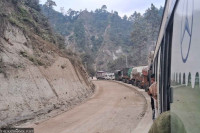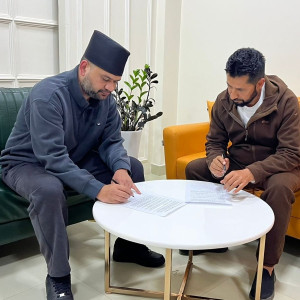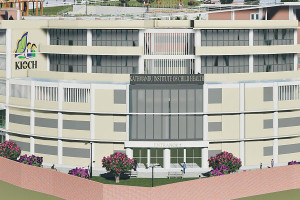Editorial
No pipe dreams
Oli govt should spell out concrete plans for reconstruction and communicate them too
The National Reconstruction Authority (NRA) belatedly started work in January this year. Still, earthquake victims have received very little support over the past four months. The vast majority of victims are yet to receive the Rs200,000 in compensation that the government promised.
The failure to disburse funds can be attributed to various factors. In some districts like Gorkha, for example, it has been two months since the victims signed agreements with the government to receive these funds. But due to the weaknesses in the banking system, they have not been able to receive the funds in their accounts. The money remains unused in the accounts of the District Development Committee (DDC). In other places, there are still disputes over collection of data on the victims. A list of victims put together by the government in Dolakha, for example, has been hugely controversial. There have been widespread complaints that the list excludes a large number of victims. The distribution of reconstruction funds is completely stalled due to this controversy.
The reconstruction process thus remains paralysed by bureaucratic inefficiency and an over-centralised approach that fails to take victims’ needs into account.
Looking at the larger post-earthquake picture, no plan besides the disbursal of money has even begun. Across districts, there are large numbers of people who have been displaced from their villages after landslides rendered them inhabitable. They are living precarious lives finding refuge wherever possible. Many of the displaced are sceptical of the government’s plans to disburse money to build houses. As they have no land of their own anymore, they have no place to build houses. The government has said that it has identified a number of places to relocate the displaced. But this process too has been very slow, and few victims have even heard about the government’s efforts in this regard.
We have repeatedly pointed out, in our editorials and our news reports, that there is very poor communication between the service providers—government and non-government agencies, including NRA, on the one hand—and the primary stakeholders—the quake victims, on the other.
The monsoon is now imminent, and victims across the country are terrified that they will have to spend another season of heavy rain under makeshift structures.
It is not just the bureaucracy that is responsible for the poor response. The country’s political leaders are even more to blame. They have not paid any attention to important matters such as improving bureaucratic efficiency and adopting a decentralised approach so as to adequately address victims’ needs.
What has not helped is the public impression that the government is busy selling pipe dreams, instead of offering concrete ideas. Two days ago, Prime Minister KP Oli made the bizarre promise that Nepal would soon have its own flag vessels. The government has also been cultivating needless hostility towards foreign governments and organisations that could have played, and can still play, an important role in the reconstruction effort. Its decision to constantly play up the nationalist sentiments could prove detrimental to the reconstruction effort, and, by extension, to the lives of thousands of Nepali citizens who need urgent help.




 5.14°C Kathmandu
5.14°C Kathmandu














